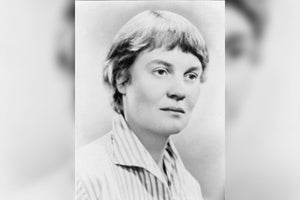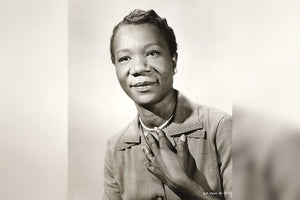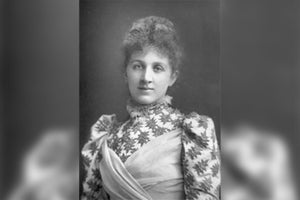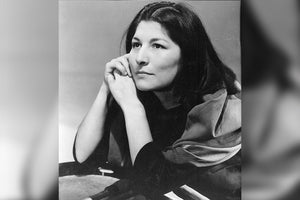Who was Millicent Fawcett?
Dame Millicent Garrett Fawcett was a brilliant English politician, feminist icon, and writer. She is known for her crusade in women's suffrage through a legislative change that led to Britain's largest women's rights movement, the National Union of Women’s Suffrage Societies.
5 Facts About Millicent Fawcett
She was the eighth child of Newson Garrett and Louisa Dunnell. She was born on June 11, 1847, in Aldeburgh, England.
Millicent served as a governor in Bedford College, London which is now known as Royal Holloway.
She was one of the founders and council of Newnham College, Cambridge which was founded in 1875.
Millicent became a Dame in 1924 and her legacy was solidified in 1953 when the London Society for Women’s Suffrage became the Fawcett Society.
In 2018, she received a commemoration in the form of a statue that stood in Parliament Square. She was the first woman to be commemorated in such a way.
Inspirational Quotes from Millicent Fawcett
“I can never perceive that burning the houses, churches, and tearing apart valuable photographs helps them to satisfy that women make them feel more empower.”
"A huge part from extant anxiety to have a better knowledge of the females is also from the belief that the political handicaps of women will not be conserved."
"I am a liberal because liberalism sound and looks to mean a trust in the people, reliance that they will regulate their circumstances way better than those circumstances are suitable to do by the others."
Biography of Millicent
Early Life
Born on June 11, 1847, Millicent was the eighth out of the ten children of Louisa Dunnell and Newson Garrett. She grew up in a household where they were encouraged to speak their minds and talk about their political interests. This was mainly due to the influence of their father who believed in Gladstonian liberalism and was known for being a noble patriot and combative man.
Millicent would later meet Emily Davies who was known for being a prominent English suffragist. When she turned 12, she was immediately sent to London to attend a private school located in Blackheath.
There, she would be taken by her sister to listen to the sermons of Frederick Denison Maurice who became the main influence on Millicent’s view on religion.
Later in 1865, Milicent showed her full support for the Kensington Society who collected signatures for a petition about the Parliament’s franchise acts towards female householders.
Marriage and Family
Millicent met her husband, Henry Fawcett, at an activists’ meeting. Henry Fawcett was a liberal member of the parliament who was supposed to marry Millicent’s sister, Elizabeth, who decided to continue her studies in the medical field instead.
They got married on April 23, 1867. Henry, however, had an unfortunate shooting accident in 1858 that left him blind. Millicent continued writing books while also tending to Henry’s needs. In 1868, Millicent gave birth to their only child whom she named Philippa Fawcett.
Political Activities
Millicent Fawcett’s political career began when she was 22 when she joined the first women’s suffrage meeting. The National Union of Women’s Suffrage Societies (NUWSS) was then known as Britain’s main suffragist organization.
After the death of its leader, Lydia Becker, Fawcett was appointed the new leader, although she distanced herself from the military actions of Women’s Social and Political Union. By 1905, the NUWSS had 305 constituent societies, giving them almost 50,000 members.
Millicent Fawcett fought for women’s suffrage and was firm in her belief that a revolutionary movement would only cause harm to the women’s chances of winning the public. During the South African War, Millicent seized the opportunity to share their ideologies in British culture. She also fought for the Uitlander’s civil rights and was entrusted to lead the investigation of Emily Hobhouse’s indictment in July 1901.
Campaigns
Over the years, Millicent supported countless campaigns. Most of them were campaigns to stop child abuse and to criminalize incest, as well as the physical and sexual abuse committed by family members towards their children.
She also supported campaigns that sought to end the practice of women’s exclusion from courtrooms. She also supported the prevention of child marriages as well as the regulation of prostitution in India. Millicent had also supported the campaign to repeal the Contagious Diseases Acts that reflected double standards in sexuality.
Publications
One of the most famous publications that Millicent Fawcett wrote for was the Political Economy for Beginners which had over 10 editions, inspired two novels, and had been published in numerous other languages. In 1875, it also appeared in Macmillan’s Magazine. Throughout her life, she published a total of three books, one of which she co-authored with her husband.
Later Years
Millicent Fawcett was awarded an honorary doctorate in 1919 at the University of Birmingham for her involvement in many movements and campaigns. During the 1925 New Year Honours, she was officially given the Dame Grand Cross of the Order of the British Empire.
Millicent Fawcett died in 1929 in her home in London. A memorial for her alongside her husband was revealed in Westminister Abbey in 1932.
![]() Fast Shipping
Fast Shipping![]() Subscribe to our Newsletter
Subscribe to our Newsletter![]() 🌟 New Global Competition 🌟
🌟 New Global Competition 🌟















